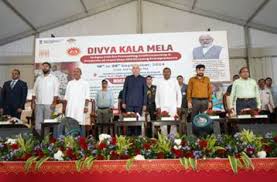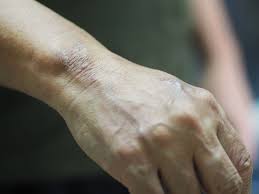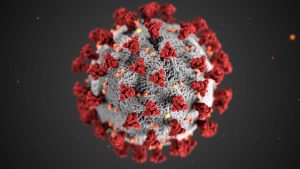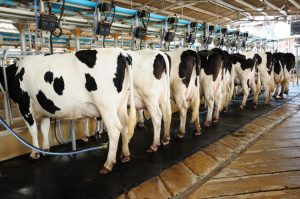Today’s Current Affairs: 23rd September 2024 for UPSC IAS exams, State PSC exams, SSC CGL, State SSC, RRB, Railways, Banking Exam & IBPS, etc
Table of Contents
India’s First Comprehensive Cancer Multi-Omics Data Portal:

The Indian Cancer Genome Atlas (ICGA) recently announced that it has launched India’s first comprehensive cancer multi-omics data portal.
- ICGA cancer multi-omics data portal is India’s first comprehensive cancer multi-omics data portal launched by the India Cancer Genome Atlas (ICGA) foundation.
- It is India’s first platform providing open access to data from Indian cancer patients.
- It provides open access to clinically correlated data from Indian cancer patients, aimed at transforming cancer research and treatment for Indian populations.
- The portal will be the first in India to offer data that includes DNA, RNA, and protein profiles of breast cancer patients, integrated with clinical outcomes.
- Currently, the platform consists of data from 50 breast cancer patients, with plans to expand to over 500 patients in the coming year.
- This data is freely accessible to the global research community under India’s PRIDE (Promotion of Research and Innovation through Data Exchange) guidelines, which promote ethical sharing and collaboration in cancer research.
Indian Cancer Genome Atlas (ICGA):
- It is a national initiative focused on mapping cancers across India, supported by a foundation.
- The ICGA Foundation, a not-for-profit organisation, operates through a public-private-philanthropic partnership.
Food Import Rejection Alert Portal:

The Food Import Rejection Alerts (FIRA)- portal was launched during the second edition of the Global Food Regulators Summit 2024 hosted by FSSAI at Bharat Mandapam.
- Food Import Rejection Alert Portal is an online portal for notification of food import rejections at Indian borders.
- It has been developed by the Food Safety Standards Authority of India (FSSAI).
- It is designed to notify the public and relevant food safety authorities about food import rejections at Indian borders.
- It will facilitate rapid exchange of information among authorities worldwide on food safety and health risks stemming from rejected food.
- It will also enable relevant food authorities to take immediate action for prevention and control of risks before it causes harm.
- The new portal has an online interactive interface for rapid dissemination of information to ensure enhanced traceability and transparency.
- It also serves as a valuable database for tracking rejected food products and for further strengthening of the risk management system.
FSSAI:
- It is an autonomous body established under the Ministry of Health and Family Welfare, Government of India.
- It has been established under the Food Safety and Standards Act, 2006,which is a consolidating statute related to food safety and regulation in India.
- It Set globally benchmarked standards for food, encourage and ensure that food businesses adhere to these standards, adopt good manufacturing and hygiene practices, and ultimately enable citizens to access safe and right food.
- It is responsible for protecting and promoting public health through the regulation and supervision of food safety.
- It lays down standards and guidelines in relation to articles of food and provides for licensing, registration, and accreditation for food business operators.
- Anyone selling or importing food in India needs a food license issued by FSSAI.
- Its officers carry out food import controls and ensure that they contain no harmful ingredients. It is also responsible for the accreditation of food testing laboratories throughout India.
Divya Kala Mela : 19th Edition

The 19th Divya Kala Mela was recently launched in Visakhapatnam by Governor Shri S. Abdul Nazeer, with support from dignitaries like Union Minister Dr. Virendra Kumar.
- This event is focused on empowering artisans with disabilities (Divyang artisans) and promoting inclusivity in society.
- More than 100 Divyang artisans from 20 states and Union Territories participated in the mela.
- They displayed a wide range of products, such as handicrafts, handlooms, and packaged foods.
- The event supports the government’s “Vocal for Local” initiative, which aims to boost the local economy by promoting products made by local artisans, helping them achieve financial independence
- The fair is open from September 19 to 29, running daily from 11:00 AM to 9:00 PM at Marine Ground, Andhra University.
- Visitors can enjoy cultural performances by Divyang artists, while also exploring food stalls that offer regional cuisines from across India.
World Audio Visual & Entertainment Summit 2025:

The Indian government will host the World Audio Visual & Entertainment Summit (WAVES) from February 5 to 9, 2025. This event is aimed at boosting India’s media and entertainment sector and strengthening its global influence.
- WAVES will be the first global summit to cover all areas of the media and entertainment industry.
- The goal is to encourage dialogue, trade partnerships, and innovation among key players in the industry.
- It will provide a platform where people can discuss ideas, form business collaborations, and explore new trends.
- The event will bring together industry leaders, stakeholders, and innovators.
- These participants will share their insights, identify new opportunities, and discuss the challenges the industry is facing, especially as it continues to evolve with new technologies.
- The summit will focus on shaping the future of India’s media and entertainment industry by attracting investment and business opportunities.
- Special focus will be given to the Animation, Visual Effects, Gaming, and Comics (AVGC) sectors, which are rapidly growing and attracting attention worldwide.
First Country to Eliminate Leprosy:

The World Health Organization (WHO) has officially recognized Jordan as the first country in the world to eliminate leprosy.
- This recognition was praised by WHO Director-General Dr. Tedros Adhanom Ghebreyesus, who highlighted the collective effort by Jordan to stop the spread of the disease and tackle the stigma associated with it.
- Leprosy, also known as Hansen’s disease, is a long-lasting infectious disease caused by a bacterium called Mycobacterium leprae.
- It affects the skin, nerves, and sometimes other parts of the body.
- If diagnosed and treated early, it can prevent serious complications like disability.
New COVID Variant XEC:

A new COVID-19 variant, called XEC, has recently been discovered .
- It was first found in Germany in August 2024, and scientists believe it may soon become the dominant variant worldwide.
- XEC is a recombinant variant, which means it was created from two different strains of the virus.
- Recombinant variants form when a person is infected with two different COVID-19 variants at the same time.
- When this happens, the two variants can mix their genetic material to create a new version of the virus.
- In the case of XEC, it is a combination of the KS.1.1 and KP.3.3 variants, both of which came from an earlier variant called JN.1.
- XEC has spread to 27 countries, with more than 600 cases reported. It is especially common in Europe, North America, and Asia. The highest number of cases is in Germany (13%), followed by the UK (7%) and the US (under 5%). Other variants, such as KP.3.1.1 and KP.3.3, are still more common in Europe, North America, and Asia, but XEC is growing fast.
- XEC has certain mutations that may help it spread faster than other variants. These mutations affect its spike protein, which is the part of the virus that helps it enter human cells. The T22N mutation from KS.1.1 and the Q493E mutation from KP.3.3 might make it easier for XEC to infect people. However, scientists are still studying whether these changes affect how severe the illness is.
Prime Minister of India is participating in the fourth Quad Leaders Summit in Wilmington, Delaware in the United State of America (USA):
Quad Group is a grouping of four democracies namely India, Australia, US and Japan and is known as the quadrilateral security dialogue or quad. The aim of this grouping is to ensure a free and open international order based on the rule of law in the Indo-Pacific.The group’s primary objectives include maritime security, addressing the risks of climate change, creating an ecosystem for investment in the region, and boosting technological innovation.
White Revolution 2.0:

Union Minister Amit Shah introduced “White Revolution 2.0” to further strengthen India’s dairy sector.
- This initiative builds upon the success of Operation Flood, which started in 1970 and transformed the dairy industry through cooperative societies. Operation Flood made India one of the largest milk producers in the world.
- The primary goal of White Revolution 2.0 is to increase milk collection across the country by 50% over the next five years.
- The aim is to boost daily milk procurement from 660 lakh kilograms to 1,007 lakh kilograms by 2028-29.
- This will also give dairy farmers better access to markets by expanding the cooperative network.
- The initiative will receive funding from the National Programme for Dairy Development (NPDD) 2.0.
- This money will be used to set up milk collection centers, create chilling facilities to keep milk fresh, and provide training programs for dairy farmers.
Credit Default Swaps:
The Securities and Exchange Board of India (SEBI) announced that mutual funds can now sell credit default swaps (CDS) citing the need to aid liquidity growth in corporate bond market. Credit Default Swaps is a financial derivative that allows an investor to swap or offset their credit risk with that of another investor.
India-A Clinches Duleep Trophy in Thrilling Final Against India-C:
The Duleep Trophy final between India-A and India-C concluded in dramatic fashion, with India-A emerging victorious by a margin of 132 runs. The match, which seemed destined for a draw that would have crowned India-C as champions, took a sudden turn in the closing stages, showcasing the unpredictable nature of cricket’s longer format.
Beach Campaign 2024 in Mumbai:
The Union Ministry for Environment, Forest and Climate Change, Bhupendra Yadav, led the country in this year’s Clean the Beach Campaign on the occasion of the International Coastal Clean-up Day on 21 September 2024. The minister participated in an event to clean the beach at Juhu in Mumbai.
India’s Historic Triumph at the 2024 Chess Olympiad:
The 2024 Chess Olympiad in Budapest, Hungary has etched itself into the annals of Indian sports history India secured gold medals in both the men’s and women’s team categories, marking a watershed moment for chess in the country.
ISRO, IN-SPACe, and NSIL Achieve Milestone:
ISRO, IN-SPACe, and NSIL have reached a significant milestone by signing 75 Technology Transfer Agreements (TTAs) with non-governmental entities (NGEs). On September 20, 2024, five TTAs were signed at IN-SPACe, Bengaluru, with Anabond Ltd., Salvo Industries Pvt. Ltd., Micropack Pvt. Ltd., and Astra Microwave Products Ltd.
Mixed Martial Arts:
Commonwealth Heavyweight champion Sangram Singh has made an unforgettable entrance into the world of Mixed Martial Arts (MMA). The Indian wrestler’s debut at the Gama International Fighting Championship in Tbilisi, Georgia, has set a new benchmark for Indian fighters in international MMA competitions.
India’s third home-built 700 MWe nuclear reactor achieves criticality:
The nuclear power reactor that achieved criticality is the first of a new series of Pressurised Heavy Water Reactors (PHWRs) to be built at Rajasthan Atomic Power Project in Rawatbhata.700 MWe units are the largest indigenous nuclear power reactors built by the Nuclear Power Corporation of India Limited




